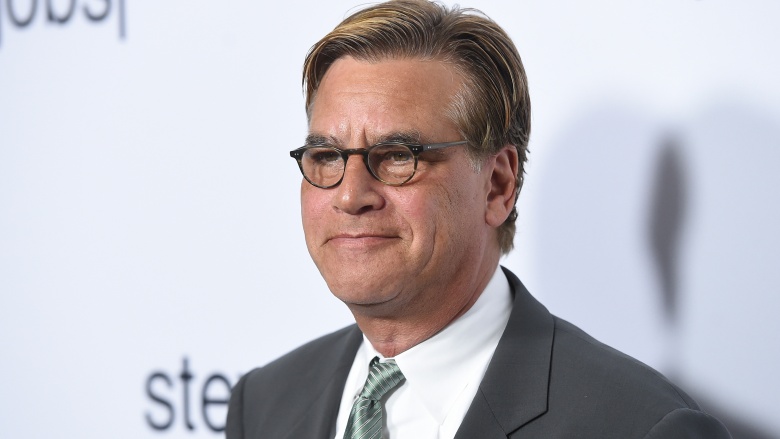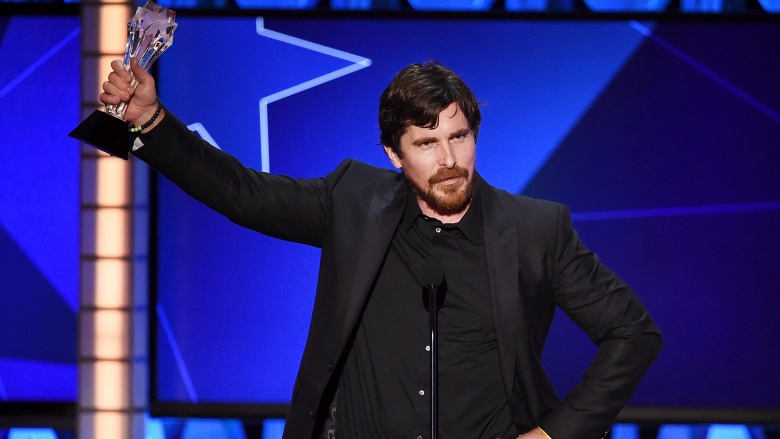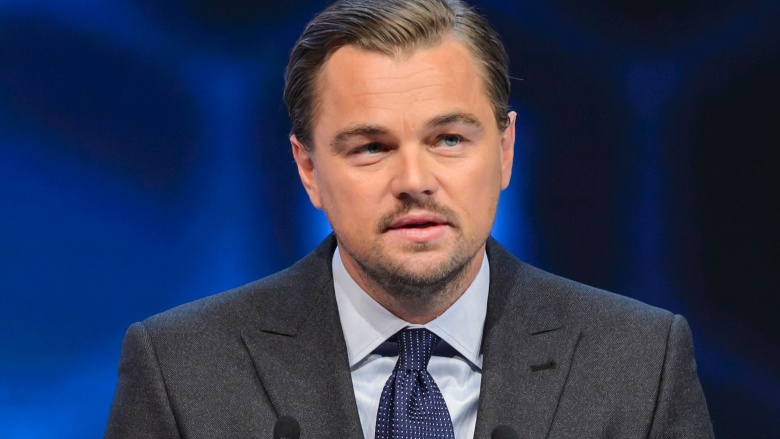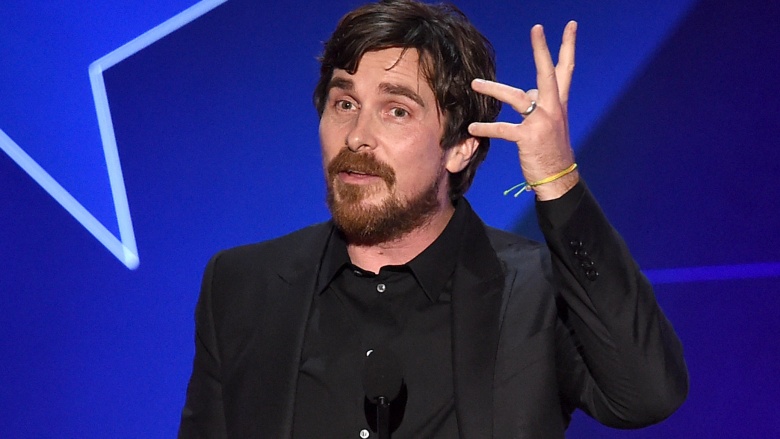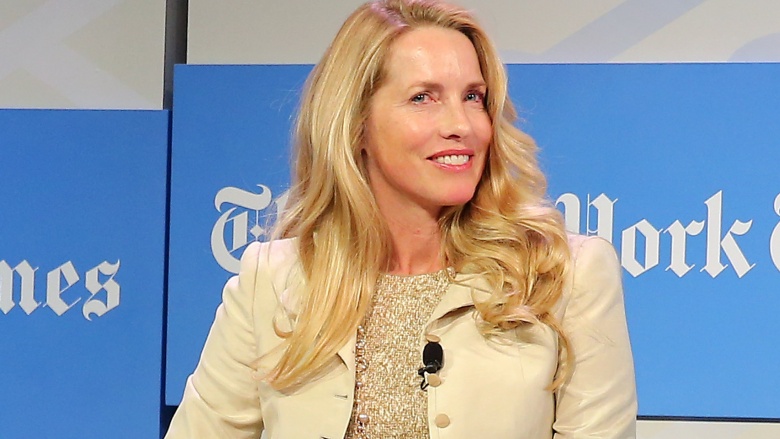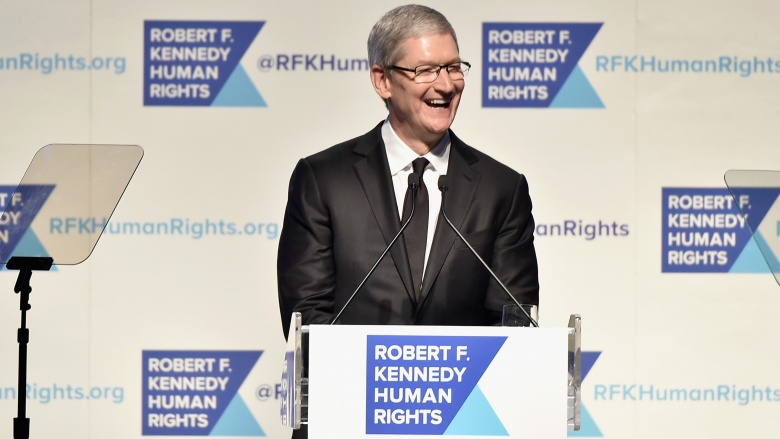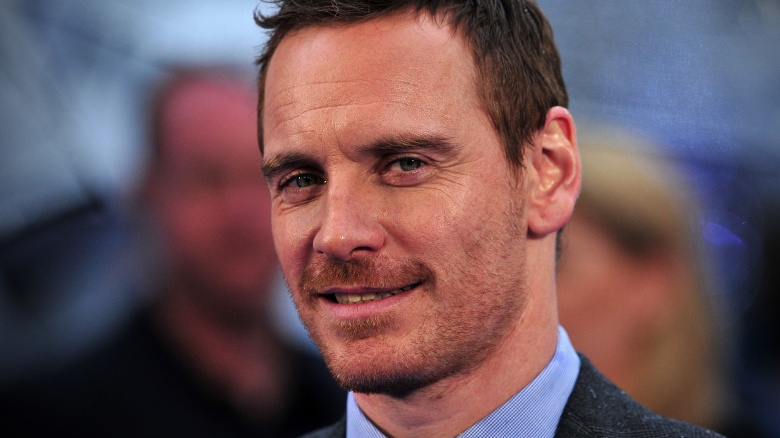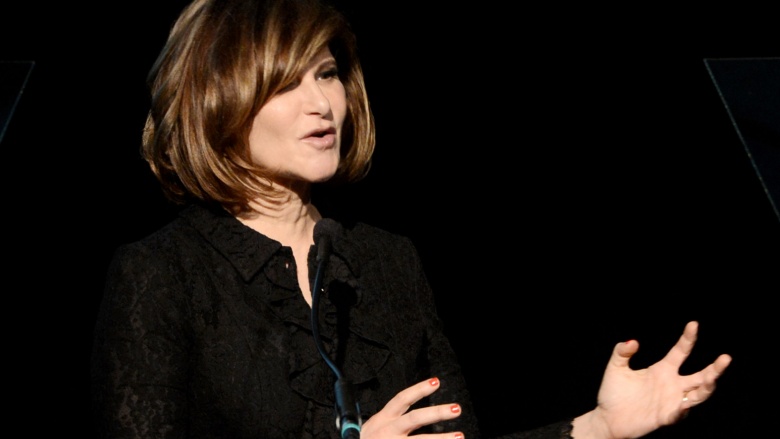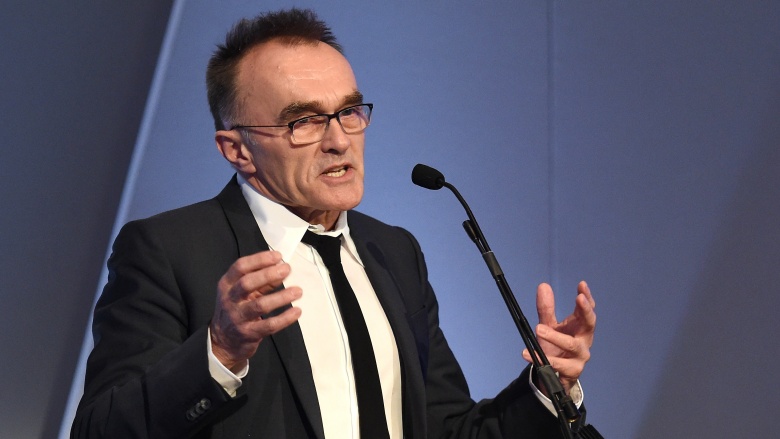What Really Happened Behind The Scenes Of Steve Jobs
As tempestuous a personality as Steve Jobs was said to have had, it makes sense that a movie detailing his life would be just as stormy. The making of Steve Jobs is rife with subterfuge, passive-aggressive name calling, character assassination, abandonment, and even a shark! All told, it's probably just as interesting and exciting as the actual movie, so put on your turtleneck and get ready to ride!
The script
Sony bought the rights to the authorized biography Steve Jobs, by Walter Isaacson, back in 2011, not long after the book was published. (It was also not long after Steve Jobs died.) Around that time, Sony also hired über writer Aaron Sorkin to adapt a screenplay from the book. And that's when the troubles began. According to Wired, Sorkin felt some trepidation in taking this job because he knew very little about Steve Jobs, so he found the prospect of scripting a biopic about the man "daunting." However, he managed to work through his nervousness, but even then, it wasn't the last spinning pinwheel of death to haunt this film.
The first director and the first star
In early 2014, the first director slated to helm the film was David Fincher, and his star of choice was Christian Bale. In fact, according to /Film, Fincher would only direct it if Bale agreed to star in it, feeling Bale was the only man for the Jobs job. A couple things prevented either man from taking part though. First, according to The Wrap, no one ever approached Bale about the movie, at that time anyways. (Maybe they thought he'd just sense they wanted him.) Second, Fincher wound up leaving the project due to contract disputes. None of the disputes' details have surfaced as of yet, according to Comingsoon.net, but it's possible he left because no one bothered to snag Bale for the movie. Talk about a fatal error.
The second director and the second star
With Bale and Fincher out, Sony turned to Danny Boyle, director of Slumdog Millionaire and 127 Hours, in April 2014 to helm the biopic. And for a star, they eyed Leonardo DiCaprio. (A dangerous combo, considering they worked together previously on the much-maligned The Beach.) But this dynamic duo was not to reunite. While Boyle stayed with the film, DiCaprio didn't, as he chose to star in The Revenant instead, according to Variety. But also, and even more interesting, according to The Guardian, Jobs' widow Laurene Jobs phoned DiCaprio and begged him not to star in the movie. Apparently, she'd wanted to kill the movie since its early stages. It looks like she half succeeded.
Four other stars
After DiCaprio decided he'd rather fight a bear in the cold than star in Steve Jobs, Sony had to look for another star. They considered Matt Damon, Ben Affleck, Bradley Cooper, and Christian Bale, again, according to The Hollywood Reporter. Each had his reason for not taking the part, but why Bale didn't take the role is interesting. Like with DiCaprio, Laurene Jobs contacted Bale and begged him not to play her dead husband, according to The Guardian. She didn't stop with calling actors either.
A widow lobbies
As mentioned before, Laurene Jobs wanted to kill this movie from the get go, and she did her best to stop it. An unnamed Sony exec confirmed to The Hollywood Reporter that Laurene reached out to Sony and asked them not to make it. Another source claimed that Laurene contacted every major movie studio in an attempt to stop the Steve Jobs flick. What's strange is that she told Walter Isaacson in 2009, "If you're ever going to do a book on Steve...you'd better do it now," according to Fortune. So she's okay with a book, but not a movie. Whatever her reasoning, she's not the only objector to the film.
Tim Cook's objections
Tim Cook, heir to the Apple throne, wasn't happy with the biopic either. Like Laurene Jobs, Cook made his objections known from the beginning and all during production. But unlike her, Cook didn't actually do anything about it. The most he did was say during a September 2015 interview on The Late Show with Stephen Colbert that everyone involved with the film was "opportunistic." However, Cook maybe shouldn't throw stones. As Aaron Sorkin pointed out to The Hollywood Reporter, "if you've got a factory full of children in China assembling phones for 17 cents an hour, you've got a lot of nerve calling someone else opportunistic." Touche!
The star is finally chosen
So despite all objections, Sony ventured on with their film, eventually choosing Michael Fassbender for the lead in November 2014. (Surprising factoid: Aaron Sorkin had no idea who Michael Fassbender was at the time, according to Cinema Blend.) At first, Fassbender didn't see himself as right for the role because he doesn't "look anything like Steve Jobs," but Boyle wasn't worried about that. He knew Fassbender's acting skills would more than make up for Fassbender's looks, according to People magazine. So with all the pieces in place, the film was set to go into production, right? Wrong! Steve Jobs froze once more.
Sony drops the film
In November 2014, Sony inexplicably dropped Steve Jobs after two years of development. It was another strange turn of events, considering how quickly Sony bought the rights to the film in the first place. (It may have had something to do with the Sony hacks.) But all hope was not lost. A week after Sony backed out, Universal hit Ctrl+Alt+Del by picking up the film rights and rebooting the movie. Filming began in January 2015. And except for complaints from a few people who knew Jobs, production suffered no incidents. That didn't come until after Steve Jobs hit theaters.
The copyright infringement lawsuit
With all the hoopla over stopping Steve Jobs from being made, the only legal trouble the film faced was over a shark photograph used in the movie. In a 27-page complaint, the photograph's owner, Carl Roessler, accuses Universal and several theater chains of using and distributing his picture without permission. An ongoing case at the writing of this, Roessler seeks an undetermined amount in damages, but with how poorly Steve Jobs did at the box office, he'll be lucky if he gets a dime.
Danny Boyle on it all
After all the craziness of making the film, it sadly tanked during its wide release. But some good stories came out of it, or at least Danny Boyle seems to think so. He told Wired that making the film wasn't just producing a tech story. It was more like experiencing one first hand. Too true, in more ways than one!

